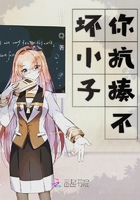But still they clung, while in their eyes there passed backwards and forwards the message that said, "It is not yet; it is not thus!" They had been like two children springing together at the report of some thunder-clap, not knowing in the presence of what elemental outpouring of force they hid their faces together. As yet it but boomed on the horizon, though messages of its havoc reached them, and the test would come when it roared and lightened overhead. Already the tension of the approaching tempest had so wrought on them that for a month past they had been unreal to each other, wanting ease, wanting confidence; and now, when the first real shock had come, though for a moment it threw them into each other's arms, this was not, as they knew, the real, the final reconciliation, the touchstone that proved the gold. Francis's death, the cousin whom Michael loved, at the hands of one of the nation to whom Sylvia belonged, had momentarily made them feel that all else but their love was but external circumstance; and, even in the moment of their feeling this, the shadow fell again, and left them chilly and shivering.
For a moment they still held each other round the neck and shoulder, then the hold slipped to the elbow, and soon their hands parted. As yet no word had been said since Michael asserted that nothing else mattered, and in the silence of their gradual estrangement the sanguine falsity of that grew and grew and grew.
"I know what you feel," she said at length, "and I feel it also."Her voice broke, and her hands felt for his again.
"Michael, where are you?" she cried. "No, don't touch me; I didn't mean that. Let's face it. For all we know, Hermann might have killed Francis. . . . Whether he did or not, doesn't matter. it might have been. It's like that."A minute before Michael, in soul and blood and mind and bones, had said that nothing but Sylvia and himself had any real existence.
He had clung to her, even as she to him, hoping that this individual love would prove itself capable of overriding all else that existed. But it had not needed that she should speak to show him how pathetically he had erred. Before she had made a concrete instance he knew how hopeless his wish had been: the silence, the loosening of hands had told him that. And when she spoke there was a brutality in what she said, and worse than the brutality there was a plain, unvarnished truth.
There was no question now of her going away at once, as she had proposed, any more than a boat in the rapids, roared round by breakers, can propose to start again. They were in the middle of it, and so short a way ahead was the cataract that ran with blood.
On each side at present were fine, green landing-places; he at the oar, she at the tiller, could, if they were of one mind, still put ashore, could run their boat in, declining the passage of the cataract with all its risks, its river of blood. There was but a stroke of the oar to be made, a pull on a rope of the rudder, and a step ashore. Here was a way out of the storm and the rapids.













